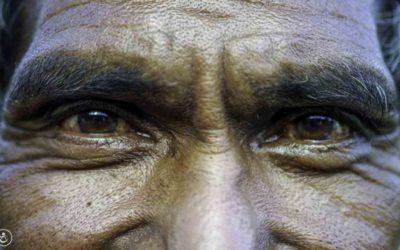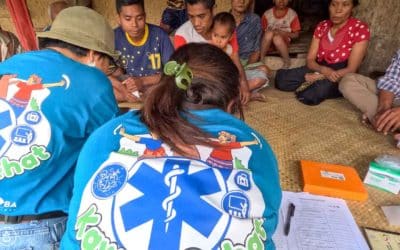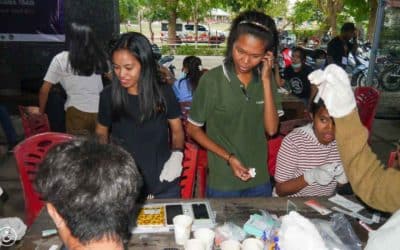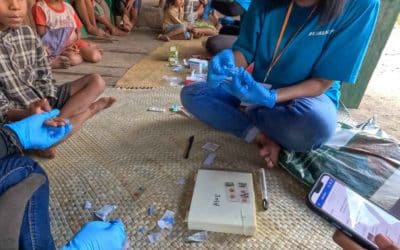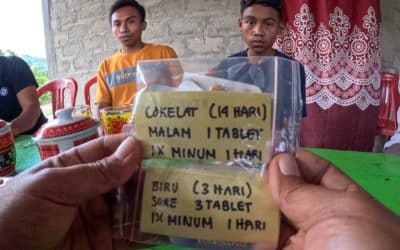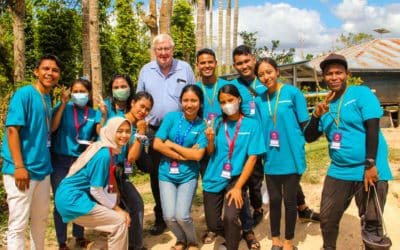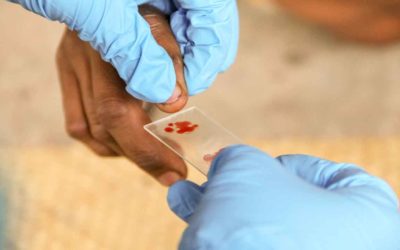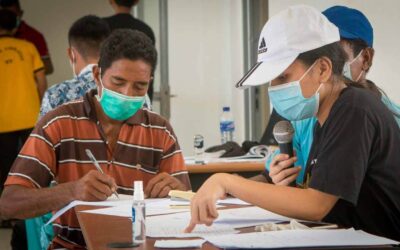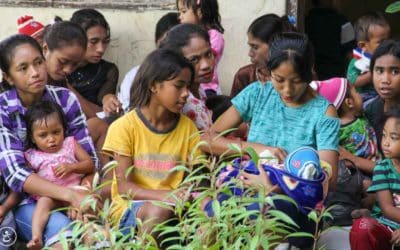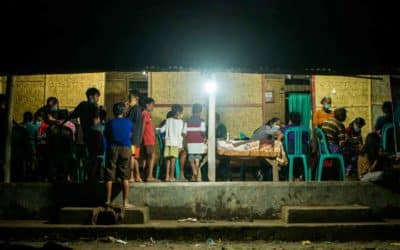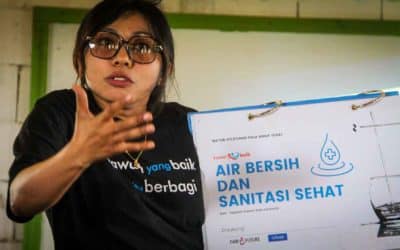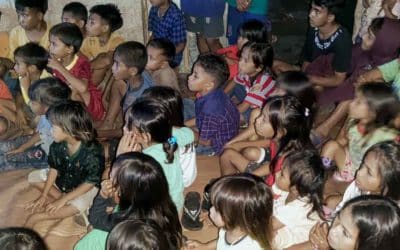At Fair Future, we don’t just initiate projects; we live them. Our approach, honed over 15 years, begins with in-depth feasibility studies and extends to immersive community interaction in East Sumba’s ultra-rural areas. We live, eat, and cook with local families to understand their real-life challenges, thereby ensuring that every program we launch has a lasting and balanced impact. Discover how Fair Future’s method sets a gold standard for meaningful and sustainable humanitarian work
To reach ultra-rural villages, we rely on the Truck of Life to navigate rough, broken roads. This vehicle allows us to deliver essential supplies, including medicines, water, tools, solar kits, and food. Logistics play a crucial role in our program; without access to fuel, spare parts, and the commitment to long days on the road, we would be unable to reach the patients in need.
Donate
Support Care
Programs
All projects
Quick News
Field updates
Stories
Field stories
Fair Future’s mission: to provide basic medical care and treatment in areas with no healthcare infrastructure.
Urgent Donation Appeal: Save Lives with Fair Future’s Critical Humanitarian Programs
Fair Future Foundation faces a critical situation that threatens the continuation of our lifesaving programs in Indonesia. With only 4000 francs left, we urgently require your support to sustain our medical and social initiatives. Your donation will help us purchase essential medical equipment, provide clean water and nutritious food, and fight diseases like Malaria and Tuberculosis. This is a dire call to humanity—every donation counts. Help us ensure a brighter tomorrow for those who need it most
Volunteers: The Cornerstone of Zero Malaria Initiative in East Sumba
In the fight against malaria in East Sumba, volunteers stand at the front lines, embodying hope, dedication, and community-driven action. Discover how these everyday heroes, contributing to Fair Future Foundation’s #ZeroMalaria initiative, are changing the landscape of public health. Their hands administer life-saving treatments, their voices educate vulnerable communities, and their efforts are the cornerstone of a better, healthier future.
#ZeroMalaria Campaign: Fair Future’s Life-Saving Mission
Championing the #ZeroMalaria Cause: Fair Future’s Tireless Efforts in Sumba East. This image reflects our unwavering commitment to the #ZeroMalaria cause. Together, we’re illuminating a path to a malaria-free future. Each test, done twice for accuracy, symbolises hope in the fight against malaria. Our teams also collect essential socio-medical data to track progress.
In the heart of one of Indonesia’s poorest and most disadvantaged regions, as well as one of the highest malaria prevalence areas in the world, Fair Future, in collaboration with Kawan Baik and Sumba Volunteer, is waging an unrelenting battle against the deadly scourge of malaria. Under the banner of #ZeroMalaria, this vital campaign is not just about medical intervention; it’s about transforming lives and ensuring every community member has a chance at a healthier future.
The Challenge of Malaria in Sumba East: Sumba East is a region where basic amenities like electricity, clean water, and sanitation facilities are virtually non-existent. Here, people face a daily struggle for survival against malaria and various other infectious diseases. Malaria, in particular, poses a significant threat to the lives of the local population.
Malaria is transmitted through the bite of infected female Anopheles mosquitoes and can have devastating consequences if left untreated. The disease can rapidly progress from fever and chills to severe anaemia, organ failure, and even death. Vulnerable groups, such as pregnant women and children, are at higher risk.
Fair Future’s Double-Testing Approach: Precision is paramount in the battle against malaria. Fair Future’s dedicated medical teams, including doctors, nurses, and laboratory technicians, work tirelessly to ensure that every case is accurately diagnosed and treated.
Our teams conduct tens of thousands of malaria tests, and each test is done twice – once using rapid diagnostic tests and another through blood tests analyzed using microscopes, all performed directly in the field. This rigorous double-testing approach ensures the highest level of accuracy, especially in an area where access to modern medical facilities is severely limited.
Collecting Socio-Medical Data: Beyond diagnosis and treatment, Fair Future recognises the importance of comprehensive data collection to guide its efforts. The captivating photo accompanying this article shows our teams diligently gathering socio-medical data from every family member and villager. This data is entered into Fair Future’s proprietary application, meticulously developed and funded by the organisation. The application serves as a crucial tool for tracking and tracing the regions where we implement the #ZeroMalaria program.
The Urgent Need for #ZeroMalaria: It’s important to remember that malaria remains a significant threat in regions like Sumba East, where people continue to lose their lives to this preventable and treatable disease. Pregnant women and children are particularly vulnerable.
The #ZeroMalaria program represents a lifeline for these communities, providing medical care, education, and awareness about malaria prevention. Fair Future is committed to ensuring that no one in Sumba East loses their life to malaria, and your support is instrumental in achieving this goal.
In closing, the battle against malaria in East Sumba is ongoing, and the stakes couldn’t be higher. Through #ZeroMalaria, Fair Future is determined to change the narrative, transform these communities, and to save lives. Join us in this life-saving mission!
Thank you very much for your support.
Alex Wettstein – Fair Future Foundation medico-social camp in East Sumba – Rumah Kambera, Lambanapu,
September 21st, 2023.
Combatting Malaria in Sumba: A Crucial Health Battle
This new "picture of the day", shows a 14-year-old young kid suffering from malaria for the second time, whom we have tested twice and is receiving his medical treatment. We explained that he must take these medications every day for fourteen days. We explain why and the risks if he doesn't. A nurse is present and will ensure regular check-ups to ensure everything is going well for him.
The fight against malaria in Sumba is an intense and crucial battle for the population's health. Every positive case, like that of this young man from Lulundilu, Kecermatan Mahu, East Sumba, requires immediate medical intervention and rigorous treatment that extends over a period of 14 days without interruption.
This young man belongs to a large family of seven siblings, all of whom have been affected by malaria before. Although he is fortunate not to have lost any close family members to this disease, it is essential to understand that malaria is wreaking havoc in this region. Our team visited his home and conducted two tests to confirm his infection, first with a rapid test and then with blood tests and microscopic analysis. Both times, the results were positive, indicating that he was carrying the Plasmodium falciparum parasite.
As with all malaria cases, Fair Future takes over the medical treatment. It is crucial that this young man diligently follows his treatment because the risks to his life are extremely high if he does not. That's why we have mobilized staff from the nearest healthcare centre, Puskesmas Mahu, to ensure that he receives his medical treatment appropriately and monitor his progress.
It is important to emphasize that since the beginning of 2023, in Sumba alone, 18 pregnant women have lost their lives due to malaria due to a lack of screening, information, proper medical care, and appropriate treatment. This tragedy highlights the need to strengthen our fight against malaria and ensure equitable access to medical care for all community members.
The Fair Future team remains determined to do everything possible to end this threat to public health and ensure that every individual has access to the necessary medical care to combat malaria and other serious illnesses. Your support and donations are essential for this mission's success and saving lives.
Thank you very much for your support.
Alex Wettstein – Fair Future Foundation medico-social camp in East Sumba – Rumah Kambera, Lambanapu,
September 21st, 2023.
Transforming Lives in East Sumba: Rotary Australia’s Vital Partnership
The partnership between Rotary Australia and Fair Future aims to make a positive impact on vulnerable communities in East Sumba. Through a joint effort, we are dedicated to providing clean water access and disease control, which will help bring hope and a brighter future to these communities. Our collaboration highlights the importance of friendship and teamwork in achieving these life-changing initiatives. Explore the transformative results of our revolutionary programs and witness the strength of our commitment to making a difference.
The #ZeroMalariaSumbaTimur program has been successfully implemented
In a concerted effort to fight the endemic scourge of malaria, the Swiss Fair Future Foundation has embarked on an extraordinary mission – the #ZeroMalariaSumbaTimur program. This groundbreaking initiative is taking place in the heart of Southeast Asia, specifically in the remote and underserved eastern expanse of Indonesia known as East Sumba.
Having already screened and treated 2500 individuals across three severely malaria-affected villages in East Sumba, our undertaking is underscored by a tangible impact. This formidable feat, orchestrated through the synergy of committed individuals such as Alandio, Ino, Elthon, Alex, Ayu, Annisa or Ayu, resonates as a testament to unwavering dedication. Over seventy staunch contributors, bolstered by fifty fervent volunteers from diverse corners of Indonesia, assemble with a shared sense of purpose.
Collectively, we have curated a multi-disciplinary team of skilled nurses, physicians, and laboratory specialists, amplifying our medical outreach. This coalition is complemented by clever logistics and data management, facilitated by an innovative application collaboratively developed by the Fair Future and Kawan Baik Foundations.
The core of our effort extends beyond the simple detection of malaria; our priority lies in education and prevention. Empowering communities with knowledge and awareness is our ultimate goal. We disseminate vital information about this dangerous disease through immersive workshops and interactive sessions. Armed with this understanding, individuals cannotntify the symptoms of malaria but also take quick and informed action to avoid potential complications and even death, safeguarding their well-being and others—their relatives.
The tangible impact of this initiative ripples through the lives we touch. Early identification and effective malaria management have resulted in life savings. Additionally, our efforts extend to enlightening local healthcare providers, equipping them with the essential tools and resources for a decisive battle against this relentless disease.
Yet our journey is not free of challenges. Negotiating the region's labyrinthine topography, working with limited resources, and transcending language barriers requires inventive methodologies and a deep sensitivity to indigenous cultures. Establishing a foundation of trust within our communities is an indispensable facet, fostering the adoption of preventive measures and a tendency to seek prompt medical intervention when needed.
We invite you to join our collective effort in the fight against malaria. Hand in hand, we can create a transformative impact, save lives and shape a radiant tapestry of possibility for everyone.
Together, we are joining forces in a powerful effort to combat malaria
A collective initiative against malaria is currently underway in East Sumba, Indonesia. Fair Future, kawan baik, and Sumba Volunteers have joined forces with over 100 volunteers, including doctors, nurses, laboratory technicians, water experts, builders, and government officials. Their primary objective is to eradicate malaria entirely within a practical period, focusing on prevention, diagnosis, and treatment methods.
Malaria Program – Preparing and Mobilizing Resources
As we mentioned in last week’s newsletter, Fair Future Foundation, Kawan Baik Indonesia, and Sumba Volunteer are joining forces to launch a crucial health and medical operation to combat malaria in the Mahu region of East Sumba, Indonesia. The “Malaria Prevention Initiative 2023 – Sumba Timur 2023” aims to prevent, detect, and treat this devastating disease in one of the most affected regions. Malaria has become endemic in this area, establishing itself and finding a conducive environment for its spread, leading to an unprecedented increase in cases in recent months.
Disease prevention, detection and treatment in rural areas
The teams of Fair Future and Kawan Baik are highly respected for their steadfast dedication to assisting ill and underprivileged individuals residing in far-flung rural areas of eastern Indonesia. Their selflessness holds true significance to them. However, it's not widely known that their medical and social teams put in tireless efforts, even during nighttime and 7-day workweeks. Through this new "Picture of the Day," we offer you the opportunity to witness their work as they combat health issues like malaria, unsafe water, and malnutrition while sacrificing their sleep.
Diseases can strike at any time, even in the darkness of night. The teams, equipped with masks and Sumba coffee, fight against these illnesses. And during this time of the malaria epidemic, doctors, nurses and volunteers are working tirelessly to provide treatment to patients.
Their dedication and passion go above and beyond the call of duty, even working late into the night to provide lifesaving care. They save lives and do so with unwavering energy and enthusiasm.
On the spot, at all hours of the day or night, they not only treat the symptoms, they also attack the root causes of health problems. Fair Future and Kawan Baik foundation fight against diseases related to dirty water by providing facilities through the #waterconnections program and raising awareness in communities about the importance of hygiene. Their mission is to make communities more resilient and prevent diseases before they even appear.
Even when faced with difficult challenges and trying situations, the teams remain resilient and optimistic. Their sense of humor is a crucial component that aids them in overcoming tough times. It also fosters a strong bond between them, enabling them to maintain a positive outlook.
Alex Wettstein shares a few words about the Foundation's medical and social teams, who work tirelessly to help people who are sick or have urgent needs.
Water and sanitation are crucial in the fight against malaria
Check out the latest addition to our "Photo of the Day" collection featuring our colleague Kawean Essi. In the village of Mbinudita (East Sumba), Kawan Essi teaches a hundred villagers of all ages, including children, about the importance of clean and safe water and how it can lead to a healthier life. The "Water Connections" program is a practical approach to fight against various infectious diseases, such as malaria.
In the fight against malaria, it's essential to acknowledge the progress made. However, we must also recognize the crucial role of hygiene, clean water, and sanitation in eliminating this disease. This is why the Water Connections program exists – to provide access to these necessities.
At Fair Future, we understand that improving these fundamental aspects of daily life can significantly prevent malaria transmission and ultimately save lives. Addressing issues such as hygiene, water, and sanitation is crucial in the fight against malaria because they directly impact mosquito breeding, access to clean water, hygiene practices, and vector management.
We prioritize these issues in all our activities, particularly in implementing the "Malaria Prevention Initiative Sumba Timur 2023" program, which we aim to start as soon as possible as part of the PMC, Primary Medical Care program.
Together, we can dramatically reduce malaria transmission and improve the health and well-being of affected communities. We must prioritize these efforts to save lives, prevent unnecessary suffering, and move towards a significant decrease in malaria cases, especially here in Sumba, where we currently are.
Empowering Health and Transforming Lives of Children
This new "Picture of the Day" displays a gathering of children in one of the homes in the remote village of Mbatapuhu, East Sumba. Our dedicated socio-medical team educates them on the importance of self-care, utilizing the "Kawan Sehat" guidebook. This village is situated in a challenging location with no access to electricity, clean water, or sanitation facilities. The nearest medical centre is over two hours away by motorbike or a gruelling six-hour walk. The villagers rely on nature for their restroom needs. Unfortunately, due to poor hygiene practices, malaria has become a significant issue. Additionally, malnutrition is a primary concern in this impoverished and rural community.
In the remote villages of East Sumba, the Fair Future Foundation conducts information sessions for children under the "Kawan Sehat" program during every visit. We collaborate with members of these rural communities to disseminate crucial information on maintaining good health, accessing better healthcare, and protecting oneself from diseases like malaria and dengue fever. These sessions, which are both informative and fun, equip children with the knowledge they need to lead healthier, more promising lives.
Malaria and dengue fever are grave illnesses that frequently afflict the rural areas of East Sumba. Through these sessions, we educate children on preventive measures such as using insecticide-treated bed nets, eliminating stagnant water and seeking medical assistance immediately upon experiencing symptoms. Through promoting this knowledge, we hope to significantly reduce the incidence of these diseases and safeguard children's health. The "Malaria Prevention Initiative Sumba Timur 2023" program was launched to combat malaria.
These sessions are not limited to specific illnesses but also cover topics such as personal hygiene, balanced nutrition, and healthy lifestyles. Children are encouraged to adopt positive habits like handwashing, consuming nutritious foods, and exercising. By incorporating such practices into their daily lives, they can develop more robust, healthier, and resilient bodies.
The Fair Future and Kawan Baik teams empower children and strengthen entire communities by providing vital information on disease prevention and healthy habits.



